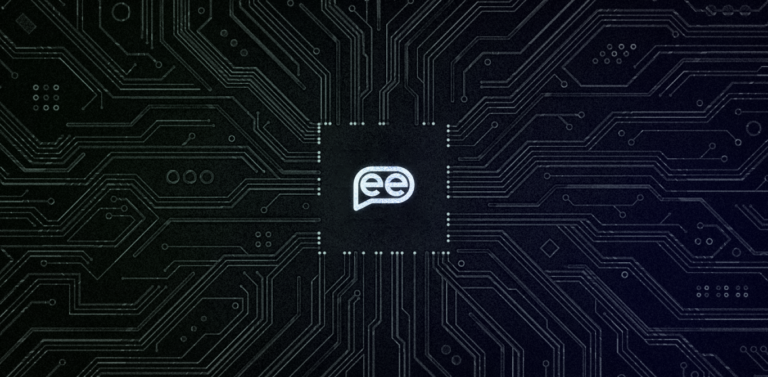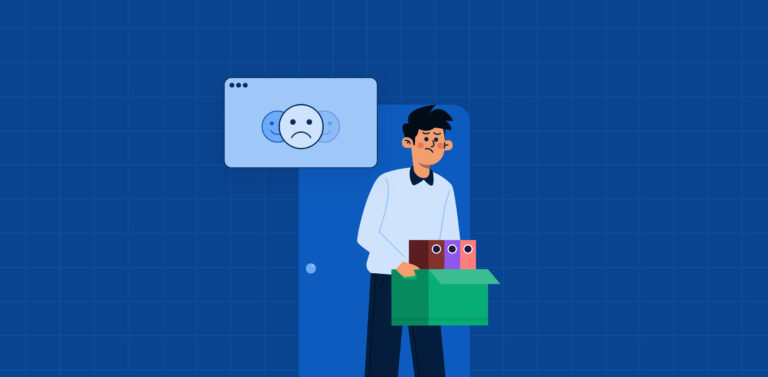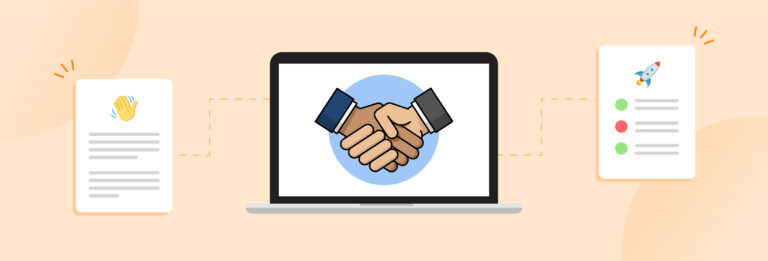The rapid adoption of digital solutions owing to the COVID-19 pandemic is changing the workplace and HR decision-making process. The new paradigm is also resulting in shifting job expectations. What was once focused on equitable rewards, fair promotion, and a great workplace environment has shifted to an increased need for remote opportunities, professional development, flexible scheduling, and work-life balance. This is where the use of AI in HR becomes critical.
With so many changes in the work environment, it has become critical for HR professionals to streamline the decision-making in human resource management. It is also crucial to create a positive employee experience through better HR decision-making models. However, this requires analyzing, predicting, and diagnosing people’s data efficiently. This is where the use of AI solutions can help streamline the factors affecting HR decision-making.
In this blog post, we’ll talk about the impact of AI on HR and its influence on HR decision-making models.
What are the five ways AI can streamline HR decision-making process

1. Monitoring the performance of changing workflows
The increasing demand for hybrid work environments is changing how HRs conduct their business. This has necessitated the need for real-time HR decision support. AI is now playing a significant role in monitoring the efficiency and effectiveness of these processes. It absorbs large amounts of data, analyzes it, and identifies patterns for efficient HR decision-making models. This in turn facilitates data-driven decision-making in HR.
Further, manual HR workflow management and monitoring is a time-consuming task. Emerging processes like AI talent assessment and integration of AI in HR workflows can remove the existing complexities in business processes, improve accuracy, and set an optimum turnaround time.
Let’s discuss how the use of AI can increase the performance of the following HR workflows:
💻 Recruitment
Nowadays, candidates expect a fast response to their application, a smooth interview process, and quick hiring — and organizations worldwide are striving to achieve this.
Therefore, AI-driven talent assessment tools are increasingly being used in recruitment processes. From screening candidates and scheduling interviews to maintaining databases and answering job seekers’ questions, AI solutions and bots help simplify the tasks, reduce the workforce spent on recurring activities, and provide a more positive candidate experience. Further, using AI tools for HR decision support reduces the hiring time and allows recruiters to be more productive in other areas, like employee management, and sourcing.
Data-driven decision-making in HR can also help hiring managers assess the candidate’s attitude, cultural fit, and other qualities. Not only that, AI-based chatbots can communicate with potential job seekers and match their profiles according to the vacancies. These can also help rate the candidates based on predefined metrics to help speed-up decision-making while hiring.
📝 Onboarding
Onboarding is a crucial part of boosting employee productivity and increasing retention rates. Right after recruitment, the AI-powered onboarding takes care of everything the new hire needs to get started on the right foot—information regarding the company, documentation help, contact with team members, and query resolution. The onboarding dashboard that comes equipped with such solutions allows the HRs to focus on key factors affecting onboarding and take decisions about how the employees should start their association with the organization, thereby boosting affinity and retention.
💡 Training and development
This is another area where AI can provide HR decision support. Nowadays, employees want personalized training programs based on their skill set and experience. Plus, they want to learn at their own pace and style.
AI-driven integrated HR software can assess employees based on their skills, activities, and desired career trajectory. This in turn helps in HR decision-making by allowing HRs to create personalized training programs and suggest courses based on individual goals.
Further, an HR decision support system for learning and development can help determine an employee’s career path based on their training program. This also enhances the decision-making process resulting in better productivity, retention, and growth in the company.
2. Uncovering Underlying Problems

AI solutions identify different employee problems and provide HR decision support to resolve them by analyzing people’s data during different HR processes. Here are a few examples of how AI helps in employee behavior analysis:
- AI-backed tools can also notice when the employee is taking many unnecessary leaves. It can be due to a personal problem, job dissatisfaction, or other significant reason. In this situation, the AI can analyze patterns and give insights on how to tackle the situation. This also allows CHROs to create better HR models concerning leaves and facilitate better data-driven decision-making in HR.
- AI solutions can also help HR professionals identify one of the most crucial mental health issues among employees — employee burnout. By analyzing the employees’ activities and communication patterns, AI technology can help HR managers figure out the emotional state of the workers, manage it, and prevent unwanted attrition through intelligent HR decision-making models.
3. Understand employee sentiment
Employee engagement and retention have become a major concern for organizations worldwide. A modern enterprise cannot succeed without the right understanding of employee mood. This is mainly because employee expectations are very volatile at the moment. To stay on top of what matters most to their employees, companies have turned their focus to efficient HR decision-making models. This allows HRs to pen down policies and programs that ensure the workforce comes to work motivated and enthusiastic every day.
With the increase in hybrid working models, it is also harder for HR professionals to understand how their employees are feeling through the conventional HR decision-making process. The annual employee surveys, though quite comprehensive, are not helping to get insights on time. By the time HRs analyze the data and turn it into actionable insights, new problems arise. This is where AI becomes essential to synchronize all the factors affecting employee engagement.
The use of AI in HR solutions helps HR managers to understand real-time employee sentiments based on their performance and how they engage with their teams. It can also help establish a more positive culture by predicting complaints and issues and addressing them before they become severe. In short, AI-powered tools offer HR teams great power to understand employee sentiment for good decision-making in human resource management.
4. More focus on human conversations
An HR’s job is demanding and complex as they have to juggle multiple activities. From solving complex employee issues and creating an effective onboarding plan to conducting interviews — there’s a lot to be done. Not to mention the communication side of the human resource department, where HR managers have to be available to address employee questions and requests. Not only is this time-consuming, but it also prevents them from focusing on other complex matters that directly impact the employee experience.
This is where AI-powered HR decision-making can help. HR tools equipped with AI analyze the employee data and provide HRs with the insights needed to address the issues and requests. Moreover, these automate different HR workflows, saving tons of HR’s time that would otherwise be spent on repetitive tasks. When mundane, simple activities are taken care of by AI HRs can focus on complex workforce issues like severe grievances around harassment, advisories, and crises.
5. Make more employee-centric decisions
Many employees feel disengaged at work and sometimes get demotivated regarding their roles. What makes them feel like this? While there can be tons of reasons for such behavior, one of the major concerns can be the lack of employee-centric HR decisions in the organization and insufficient data-driven decision-making in HR processes. By the use of AI, HRs can achieve a true employee focussed organization.
Employee-centric decision-making in human resource management is when a company puts employees at the core of everything it does. It creates a positive employee experience which results in increased retention and acquisition. It involves studying each employee’s behavior, needs, and sentiments and analyzing these to make HR decisions while keeping workers at the heart of things.
However, analyzing such large amounts of data can be cumbersome and time-consuming. Not to mention the high scope of human errors and inaccuracy — leading to bad decisions. This is where AI technology can prove beneficial by providing HR decision support for analyzing data and sorting out insights that can help the HRsunderstand their employee needs better. Plus, it uses predictive intelligence, machine learning, recommendation, and process automation to help with better HR decision-making.
The right HR decision is the difference between good and great

During the current scenario where business processes and employee expectations are evolving at a fast pace, making the right HR decision is highly essential in reshaping the employee experience, boosting productivity, and reducing churn.
The impact of AI on HR and data-driven decision-making in HR is highly positive, given its ability to accurately analyze large amounts of data and provide real-time HR decision support. And in the wake of the Great Resignation, AI-powered HR solutions and data-backed HR decision-making models are the only way to bridge the employment gap, make long-term hiring decisions, and help companies retain the best of their resources. Therefore, the use of AI in HR is an excellent solution for making HR decisions that help achieve bigger company goals.






